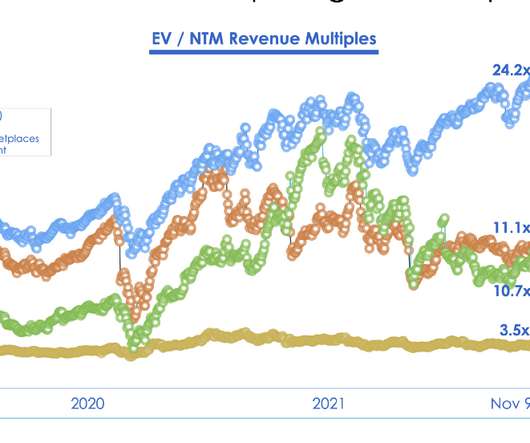What Does the Post Crash VC Market Look Like?
Both Sides of the Table
SEPTEMBER 15, 2022
Should SaaS companies trade at a 24x Enterprise Value (EV) to Next Twelve Month (NTM) Revenue multiple as they did in November 2021? This happens slowly because while public markets trade daily and prices then adjust instantly, private markets don’t get reset until follow-on financing rounds happen which can take 6–24 months.















Let's personalize your content